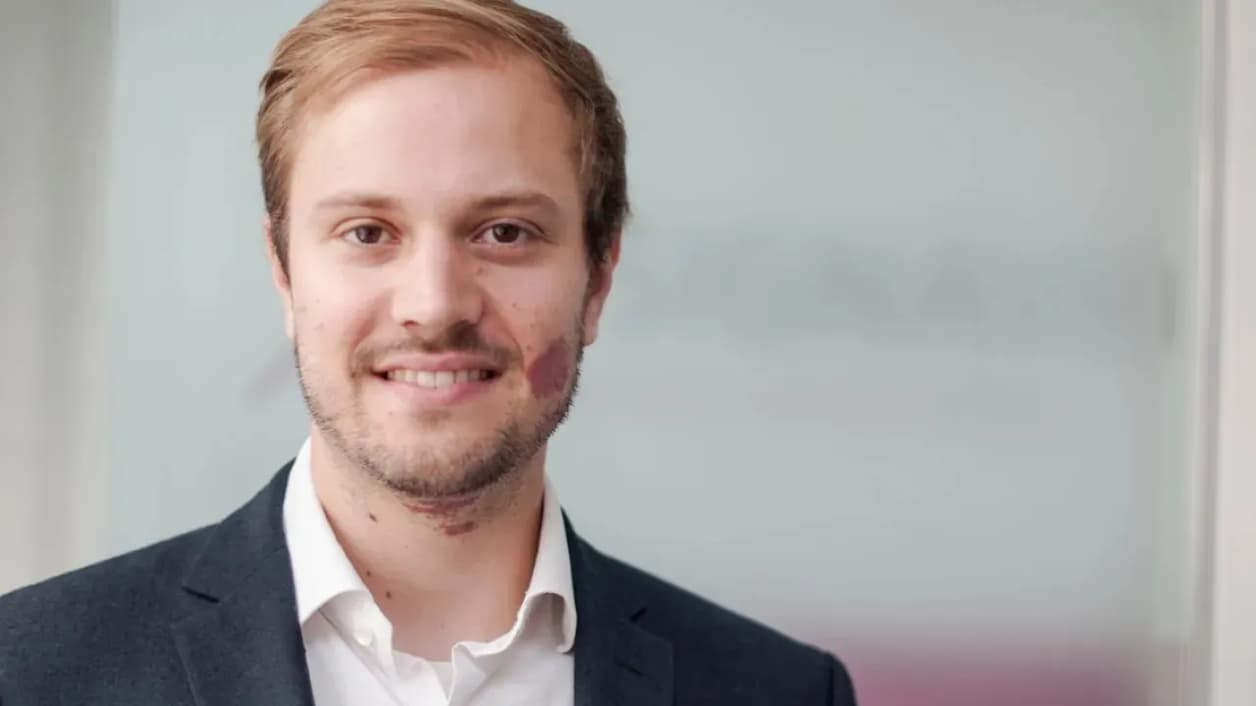
A software engineer by training, Gero Decker’s excitement for technology and business is only surpassed by the success he’s had in these fields.
In 2009, he co-founded Signavio, a Berlin-based start-up that makes business process analysis software. Its clients include heavyweights such as Siemens, Bosch and Coca-Cola. After 12 years as an independent provider, Decker and co-founders sold the company to German technology giant SAP for a reported €1 billion. The 40-year-old entrepreneur has remained at the helm of the organization, growing the business further.
Decker became interested in private equity after seeing how these funds operate and the “superior returns” they can deliver. In a recent interview with Moonfare, he also explains how he made his first private equity investment, the pitch he uses to enthrall people for the asset class and what opportunities he thinks “will generate massive returns over the next 10 to 20 years”. That said, we started our conversation elsewhere - with whisky.
Before the interview, you told me you also invest in fine art and whiskey. I assume these investments were born out of passion?
It always starts with passion and personal interest. A very good bottle of whiskey meant for consumption could cost €1,000. Let’s say you spend €10,000 on ten bottles for personal use, however, the step between spending that amount and paying a million euro is a huge leap that you’ll never make because of passion only. There needs to be financial logic behind as well.
What about private equity, how did you start investing in these assets?
Signavio was backed by venture capital and private equity, so I quickly learned how these funds work and found it very interesting.
The first time I invested in private equity was through Moonfare in 2019. It was one of KKR's growth funds. Since KKR showed interest in Signavio, I knew the team personally and the value they were generating. It was an easy decision to invest and Moonfare was the vehicle to get in.
But the sale of Signavio was the trigger point. That’s when I suddenly got money to invest in private equity with larger sums.
What’s the appeal you see in private equity?
First of all, I understand how it works. I’ve seen first hand how funds operate, the types of companies they invest in and the superior returns private equity can deliver.
For example, one of the private equity funds that invested in Signavio made a 7.5-times return after only a two and half year holding period. There are many other companies like ours that grow very fast.
From a returns perspective, private equity generates much better returns than what you would get in public markets and it consistently has been the case for many years.
You're a startup insider. Do you also invest directly in emerging companies?
Investing in individual companies can be a pain. For me, going through a fund makes much more sense. But the better funds tend to be larger and are harder to get into if you don't have €50 million to deploy. This is where the appeal for Moonfare comes from.
In the end, it's a matter of access. If you invest into a $2 billion fund, you can’t invest even with a million or two. You simply can't. In addition, Moonfare’s solution is very convenient. I don't need to go to the notary to make an investment. I write two emails and I sign one DocuSign. That's it.
Given that you’re a very successful Moonfare Investor Club member, how do you get people interested in private equity?
I tell people, “if you want to invest money and you don't need it for a couple of years, you’ll get the greatest returns with private equity.” Full stop. I understand that liquidity can be an issue but even there Moonfare offers some liquidity with the secondary market.
Illiquidity of private equity is indeed one of the bigger concerns people have, up there with fees. How do you address these potential concerns?
I’m privileged to have the means to lock up a significant portion for years. So I don't mind that private equity is more illiquid. In fact, having money locked up for a long time may protect me from making less rational investment decisions.
But the question of liquidity largely depends on where you stand in your life. I’m 40 years old and I feel I can do significant things when I'm 50 as well. For me, investing in private equity at this stage of my life is a no-brainer. But if I were 70 I’m not sure if I would still think the same.
When it comes to fees, I understand there’s the carry structure, the management fees and an additional layer of Moonfare fees. But even after all of these costs, private equity still offers superior returns which is pretty remarkable.
There’s a lot of uncertainty in the economy currently. Do you think investing in private markets makes sense in the current environment?
Now more than ever. Historically, the best vintages have emerged after crises and the vintages that invest now will likely produce the greatest returns. This has always been the case. In tech, for example, prices have come down to a more robust and sustainable starting point.
You have an exceptional view of finance, business and tech. Where do you see the big opportunities for investors in the next 10 years?
I think digital is still in its infancy. Multiples and valuations have been crazy one or two years ago which probably disrupted the excitement in the market a little bit, but digitalisation is with us long term.
I'm very involved in artificial intelligence (AI). We can't even imagine today what will be possible with technology in the next 20-30 years. A lot of value is waiting to be unlocked.
The other big theme that I'm heavily investing into is climate tech, both in terms of valuations and revenue potential. For example, how to more efficiently produce cement or steel or how to directly capture carbon from air? These are urgent problems that we need to solve but they require innovation and can’t be solved by technology that is mainstream today.
Some areas like fusion energy are not yet investable but many other technologies like ultra deep geothermal solutions are already in early commercialization stages. Lots of capital will be required, but these technologies will generate massive returns over the next 10 to 20 years.
Do you think this progress will be mainly driven by large corporations and tech giants or there's going to be big opportunities for startups too?
My bet is on startups and emerging companies. They work on many of the exciting technological leaps. If it works, these investments can provide a phenomenal financial return and more importantly, they help us save our planet.
Do large companies need to transform? Yes, of course. Will this reflect in the stock price? Not necessarily. They might need to transform to survive while startups begin at a low base but can grow into a billion euro company, delivering massive multiples on the way.




